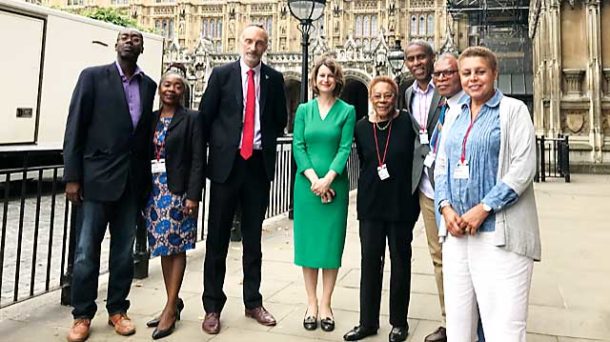
Lambeth council is planning to offer Brixton’s Black Cultural Archives (BCA) a grant of £250,000 to help it to change its business model and operations to generate more income.
At the end of last year the BCA launched a £30 million crowd fund appeal to secure its future but, so far, it has received pledges of a little over £50,000.
Local MP Helen Hayes (Labour, Dulwich and West Norwood) raised funding for the BCA in a parliamentary debate she organised to mark the 70th anniversary of the arrival of the Empire Windrush.
In an article for the Brixton Bugle, she said that she has asked central government to commit national funding to the BCA.
It is, she said, “a national resource, which is critical to our understanding as a society, and vitally important for the sense of place and belonging of many black British people.”
She continued: “Unusually for a national archive, the majority of the BCA’s core funding is now provided by Lambeth council.
“This is neither appropriate nor sustainable, particularly in the context of cuts to the council’s budget – the BCA needs stable core funding from the government to enable it to do the work of outreach and interpretation and secure it for the long term.”
Since the debate, Helen Hayes and BCA representatives have met Department for Culture Media and Sport minister Michael Ellis at the BCA and he has agreed to establish a working group to look at secure funding.
“We will keep the pressure up to ensure that the BCA is set on the same footing as other national archives and museums, to secure its vital work for the future,” said the MP.
The council intends to delegate authority to enact recommendations attached to the planned grant to Sue Foster, its strategic director for neighbourhoods and growth.
The BCA has a detailed set of changes that it intends to make to its “organisation structure and approach to visitor experience and programming”.
The council report
says that these changes “will reduce expenditure, improve efficiency, and increase the likelihood of the BCA generating more commercial income and additional grant funding from non-council sources”.
The grant of £250,000 is planned to be paid between 1 August this year to 31 March 2019 “to enable changes to the business model and operations that BCA Trustees plan to make.”
The funding will be conditional and will be released on the achievement of key agreed milestones proposed by the BCA.
Founded in 1981, the Black Cultural Archives is a national institution that collects, preserves and celebrates the histories of people of African and Caribbean descent in Britain. It has been housed in Raleigh Hall, a Grade II listed building on Windrush Square, since 2014.
It is, says the council, “a unique and important heritage and cultural asset not just for Lambeth, but for London and the UK. The BCA has an unparalleled and growing archive collection, offering insight into the history of people of African and Caribbean descent in Britain, and a platform for dialogue.”
The council transferred Raleigh Hall to the BCA under a 99-year lease at peppercorn rent.
The Heritage Lottery Fund provided capital support of about £4.5 million for the building’s £7 million development and project-specific revenue funding. Other capital funding came from Lambeth council, the Mayor of London and Biffa, a waste management company.
In June 2017 an earlier Lambeth council report recommended a grant award of £540,000 for the BCA for three years from 1 April 2017 to 31 March 2020.
This funding was “to enable the organisation to put measures in place to ensure their long term sustainability and to reassess its business model”.
It said that the package of revenue funding for the BCA from the council and Heritage Lottery Fund would end on 31 March 2017, “leaving the organisation with an immediate annual public funding gap of £426,076”.
The current report says that, “in the context of major cuts to local government funding over successive years, the BCA trustee board has recognised the need for a review of their operating model, and recognises the BCA must reach a stage in the near to medium term where it can continue to grow as a cultural organisation without being dependent on grants or public subsidy.
“The council will continue to work with the BCA to help the organisation develop and thrive.”







